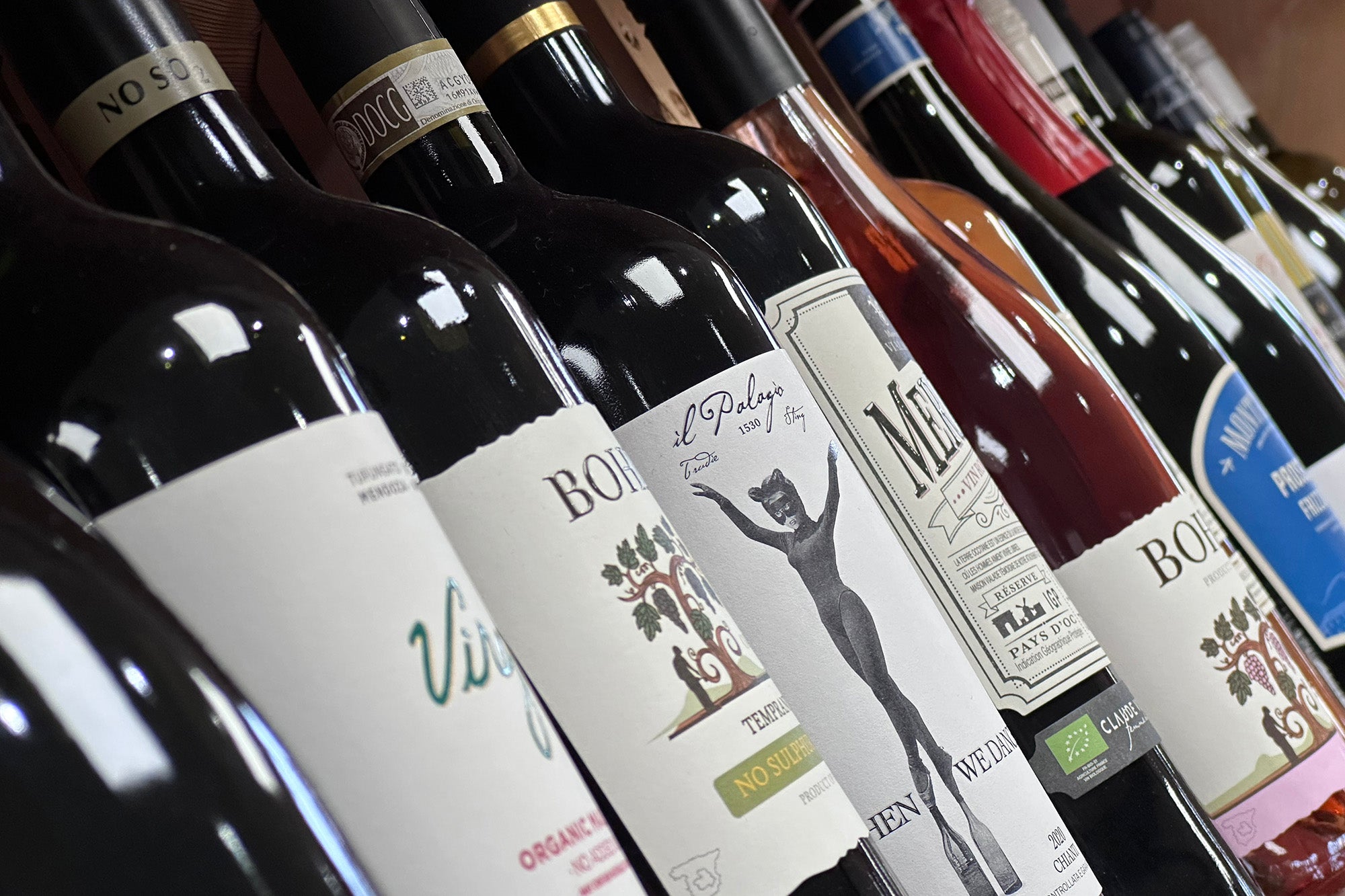THE FIVE QUESTIONS

Across the Mediterranean, crops are failing, drought and floods are affecting vast swathes and the olive harvest has, to all intents, just failed for the second successive year which now presents a very real threat for the future.
These are the five climate related questions we will ask as many people as possible as we travel across the region. By asking the same questions to everyone, we hope to build a complete picture of how climate change is viewed by those on the ground with real, daily, lived experience.
- What changes have you seen in the climate in the last 10 years?
- How has this affected your and your family’s way of life?
- What effect has this had on your business?
- What changes have you had to make already and are planning to make in the future?
- How do you see the future?
Le Granges O Belles, Champfrémont, Normandy, France - Jacky Roux
We’d chosen to use the French Chambres D’Hotes system – similar to a Bed & Breakfast except you are generally joined at meals by your host. We arrived after getting caught in the rain, completely drenched but very relieved by an exceptionally warm welcome from our host, Jacky Roux. He scooped us up and swept us into his drying room with a massive boiler roaring away, got our bikes tucked away into his woodshed and made us the most delicious dinner. Turns out our host, Jacky, was an ex Hotelier, Restauratuer and Chef with a penchant for motorbikes which was why we were so warmly welcomed and accepted as two wet English dripping and dribbling onto his tiled floor.
Over supper, he told us how, that since Brexit and Covid, he hardly ever saw any English visitors anymore and he enquired of us if we thought the English had lost the travelling spirit and whether it was to do with, “That clown, Trump 2 – Boris Johnson?” The following morning, as we got ready to depart, he hand wrote his answers and handed them over solemnly before bidding us farewell.
- Less Winter, More Storms, More Wind
- Not so many changes just more attentive to the climate
- Not as much as Brexit
- More attention to the water spent and recycling as much as I can –food, plastics, glass…
- I’m more glass half-full but we all have to be more attentive and understanding of nature and other people.
La Sardonnets, Allouis, Centre-Val de Loire, France - Claude Billon
Our next Chambres D’Hotes was on a working Goat Farm. We found our host, Claude, had not a word of English and the whole place was a little ramshackle. Slightly different dinner: Appetiser of Goats Cheese, Main Course of Baked Goats Cheese, Dessert of Goats Cheese Craime Fraiche. Discovered he was an ex drummer in a Jazz Band playing with the likes of Eric Clapton back in the day. The travelling and touring all got too much so he decided to take up goat farming and runaway to the country.
- Less rain when it used to rain and more rain when it never used to rain.
- I used to be a musician – playing the drums in Jazz Bands. The touring got too much so I decided to take up Goat Farming and stop the touring. Found out I’m good with goats.
- Goats don’t seem to mind the rain.
- Since they don’t mind the rain, I’m going to get more goats
- The future for me is all about the goat. More goats. More cheese. More guests. Maybe weather improves. Maybe not.
Mandoue, Pont St Martin, Aosta Valley, Italy – Alberto
Alberto was our host at a little B&B in Pont St Martin. We’d just crossed into Italy through the Mont Blanc Tunnel and dropped down through the Aosta Valley. 23C down on the road in the valley floor surrounded by snow covered peaks to the left and right of us. Plenty of waterfalls full of melt water into streams and rivers a muddy shade of blue.
Alberto greeted us with coffee but not a word of English so we tried French as our Italian is as limited as his English. Turns out he worked in the stainless steel industry before retiring and buying the B&B some 10 years ago. We asked him about the changes he’d seen since then…
- Every year the winter is a little less hard and the snow goes earlier and earlier. We even have olives in the Aosta Valley now. I think around 3000 trees. I’ve even been told of some cherry trees. Apparently, when they first harvested the olives some 20 years or so ago they wore jackets and long trousers, now they do it in T Shirts and Shorts. I’m told the Alps are now 2 degrees warmer since the 1800’s.
- We have got used to unpredictability – you never know from one day to the next how it will be – especially at this time of year – one day it can be like this and the next can be 5C or less.
- None to speak of – people still come and stay.
- Too late for me to change much now, that’s for the next generation.
- Don’t ask. I don’t like to think of it.
Albergo Esperia, Tabiano Terme, Italy – Leonardo
Leornardo is a warm, welcoming host who bustles about briskly and seriously. Tabiano Terme is known as the City of Breathing – it has a Thermal Spa that once supported over 50 hotels in the town. All but two or three of these are now abandoned, all the shops are closed, there is one Café, Roxy Bar, which is still limping along even it mortally wounded by the change in fortunes of this once prosperous town. The whole place has an air of abandonment and it is amazing that the hotels that do still operate are able to do so at all. We asked him slightly different questions:
What happened here?
Back in the 70’s and 80’s the Italian Government subsidised thermal treatments to a great extent. No one needed a medical referral, you could just book and the government would pay for your treatments and your hotel bills – it wasn’t even classed as holiday so you could take the time off work and come here, be paid as if you were at work and not pay anything for being here.
How did that affect the town?
It was like a gold rush, hotels sprang up everywhere, we had nightclubs, bars, restaurants – it had a real party feel – every day we were full as were all the other hotels. They were the good times. Now, it’s all changed. The subsidies are all gone and only a few people can afford to come and take the treatments.
What effect has that had?
We are one of the last few hotels left. Each year we see fewer guests.
How do you see the future?
I’ll probably be the last manager of the hotel. It won’t need one soon. I’ll need a new career somewhere away from here.
Acetaia Leornardi, Formigine, Modena, Italy - Francesco Leonardi
Acetaia Leonardi has been producing Balsamic Vinegar just outside Modena since 1871. Their vinegars are outstanding and, having now visited and seen at first hand, the Baterias – groups of wooden barrels arranged in endless rows and racks – that are used to age the vinegar. Some of the vinegar still dates back to the 1870’s. We were met by Sara who was our guide for the day and took great pride in showing us from room to room where all the various processes still take place in much the same way they did in 1871. Later, over lunch, we were joined by Francesco Leornardi, 4th Generation of the family, who now presides over the Leonardi empire with justifiable pride. Every dish we had was complimented by another style of Balsamic and the talked turned to climate:
- Every year is different – there is no longer the pattern we once knew. This year we had hail so bad it destroyed a whole area of vines. This area used to suffer from fog but that is all but gone now. Everywhere the seasons seem to be less defined and cultivating the grapes is more of a challenge than ever before. We also have Olive groves in Sicily – there, the Summers are hotter every year with less water and no winter to reset the trees.
- Fortunately, our industry is not like the olive and olive oil industry – our vinegar takes time to mature, some is already 150 years old and we have plenty of stock so we can cope with a few poor harvests. If you get a bad harvest on the olives, that’s it – there is no stock to carry you over.
- The effect on our business is that we need to be more adaptable and flexible in our approach to the vines – they need different tending to before – we cannot stop monitoring, day by day, to see what they need – this we never needed to do. The yearly patterns are all gone it seems. Maybe they will return here. For now, no.
- We continue to invest and adapt, develop new products, explore new things – you cannot stand still. We are lucky that we have so much existing stock but we need to keep replenishing – that is the challenge
- We have definitely seen changes but we will find a way. The vines will adapt as will we.
Sezana, Slovenia – Branko
Our Slovenian host, Branko, showed us to our abode, which was a subterranean series of rooms advertised as, “Cosy Apartment Under The Vines”. We’d pictured something above ground surrounded by vines not underground beneath the roots of the vines but it was spotless and, unsurprisingly, incredibly quiet. Over the course of a number of chats he told us:
- Every summer is hotter than the last. It’s 30C today. In April. Crazy. Things have definitely changed – we have no winters now.
- I never know what to wear from day to day – here I am in shorts but we have snow in the forecast in the next day or two so who knows.
- Business is OK – bookings seem to come and go – the main challenge is how hot to make the heating
- I’m concentrating on my grandchildren now.
- The future? I don’t want to think what will come.




